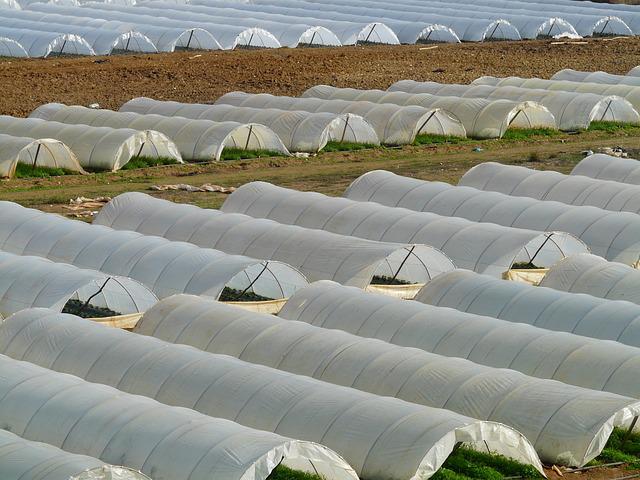Research by chemists at the University of Reading is being used to develop new materials for commercial polytunnels with the potential to improve the quality, yield, and resilience of soft fruit and vegetable crops across the globe.
The global market for soft fruit has grown steadily over recent years, along with increased pressure on growers to meet year-round demand for seasonal products such as strawberries. Most commercial soft fruit crops are grown in polytunnels, where environmental factors such as temperature and humidity can be more closely controlled.
In what is a huge boost to the industry, collaborative research by scientists at the University of Reading has shown that by manipulating the spectral characteristics of the multilayer polymer films used in commercial polytunnel systems, it is possible to produce higher value crops and larger yields, while extending the growing season and reducing pesticide use.
Dr Fred Davis, a polymer chemist within the Department of Chemistry, found that incorporating small molecules and inorganic nanoparticles into polymer films could alter the UV-blocking and UV-transmitting properties of the material. His subsequent work, to establish the optimum size, distribution, and orientation of particles and to identify an economically viable method for their incorporation to polymer films, led to the development of three new technical film products tailored for use in different growing conditions.
Working with Professor Paul Hadley in Reading’s Department of Crop Science, Davis demonstrated the significant impact of these products on yield and quality, as well as on the production of antioxidants and in terms of pest and disease resistance, in both strawberries and lettuces.
The commercial success of these products has influenced growing practices around the world, with the development of an efficient mechanism to alter the spectral response of polymer films continuing to offer enormous potential for the future of global agriculture.

